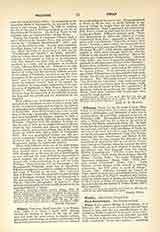

Filliucci, VINCENZO, Jesuit moralist; b. at Sienna, Italy, 1566; d. at Rome, April 5, 1622. Having entered the Society of Jesus at the age of eighteen and made the usual course in classics, science, philosophy, and theology, he professed philosophy and mathematics for some years, and later became rector ofthe Jesuit college in his native city. Being summoned to Rome to fill the chair of moral theology in the Roman College, he taught there for ten years with great distinction. Paul V appointed him penitentiary of St. Peter’s, a post he filled until his death in the following pontificate. Filliucci’s greatest work, “Moralium Quaestionum de Christianis Officiis et Casibus Conscientiae Tomi Duo”, appeared in 1622, and together with a posthumous “Appendix, de Statu Clericorum”, forming a third volume, has frequently been reprinted in several countries of Europe. A “Synopsis Theologise Moralis”, which likewise appeared posthumously in 1626, went through numerous editions. Filliucci is also known for his excellent “Brevis Instructio pro Confessionibus Excipiendis” (Ravensburg, 1626); this work is generally published as an appendix in all subsequent editions of his “Synopsis”. Besides these published works, there is a manuscript, “Tractatus de Censuris”, preserved in the archives of the Roman College. As an authority in moral theology, Father Filliucci has ever been accorded high rank, though this did not save him from the attacks of the Jansenists. The “Provincial Letters” of Pascal and “Les Extraits des Assertions” make much capital out of their garbled quotations from his writings; while, in the anti-Jesuit tumult of 1762, the “parlement” of Bordeaux forbade his works and the “parlement” of Rouen burnt them, together with twenty-eight other works by Jesuit authors.
JOHN F. X. MURPHY

